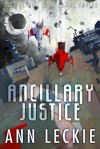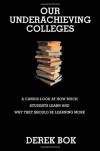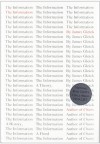Currently reading
McGlue
Knife Fight and Other Struggles
Far from the Tree: Parents, Children, and the Search for Identity
The Good Lord Bird
Ancillary Justice
Our Underachieving Colleges: A Candid Look at How Much Students Learn and Why They Should Be Learning More (New Edition)
Dissident Gardens
Nightmare Movies: Horror on Screen Since the 1960s
The Information: A History, a Theory, a Flood
Complete Novels
 It was a bad move, shifting from elliptical brevity to the every-bowl-of-oatmeal-and-every-train-route detail of Willis' Blitz-era time-travel adventure.
It was a bad move, shifting from elliptical brevity to the every-bowl-of-oatmeal-and-every-train-route detail of Willis' Blitz-era time-travel adventure. This'll delight many people -- it's richly attentive to the period. (Yet many could be annoyed by both the quantity and the method; all these time-traveling historians responding with italicized thoughts, refuting what some "contemp" said about the state of the war... "Don't worry, guv, the jerries can't keep this up." Oh yes they can, she thought, recalling that 138 V-1s fell in a 36-hour period on September 14th and 15th, injuring hundreds....) And many will be equally delighted by the every-chapter-cliffhanger momentum of Willis' jam-packed Rube Goldberg plotting, as various of her historians find their quick research trips complicated and confounded by events both local (snotty evacuee kids, the plucky escapades of countless local heroes) and temporal (apparent unpredicted disruptions in the time-travel mechanics, perhaps even an "impossible" alteration of the historical record). (And many could be annoyed by the ratio of exclamation points to event, the energy of oh-what-will-happen not quite equal to the fact that what is happening is full of happenings but short on really big action.)
In a different mood, it might be a stronger 3, even 4 star. But what I liked more in her previous Passage and loved in the earlier-yet Doomsday Book seems here more tiring. I blame Don DeLillo.












